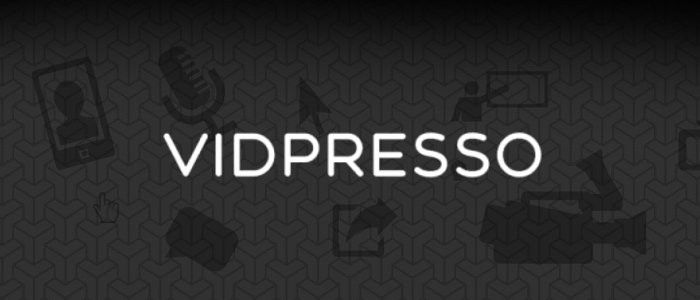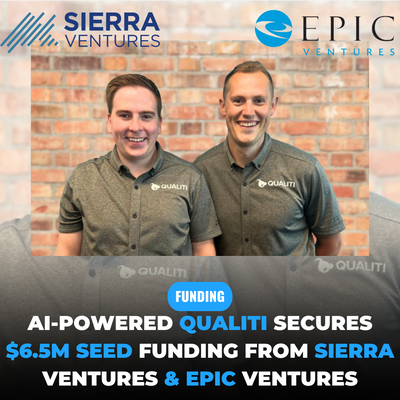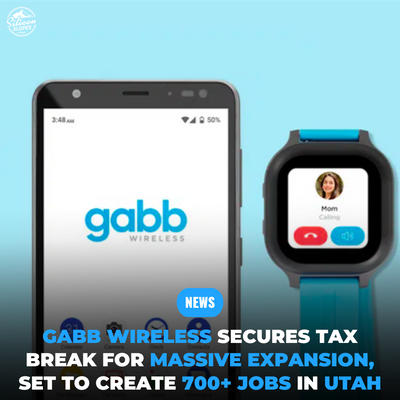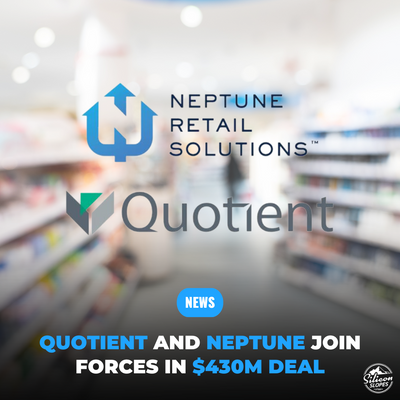YC helps dole out a healthy dose of perspective.
Utah is well-represented at Y Combinator right now. The Silicon Valley accelerator boasts two Utah-based companies as members of its 2014 winter class.
The first Utah startup to get accepted into Y Combinator’s current class was Weave, a SaaS company based out of Pleasant Grove (read our story on Weave).
Vidpresso, founded by Ogden resident Randall Bennett, is the second Utah startup to get accepted into the current Y Combinator class.
Vidpresso applied to Y Combinator after the application deadline had already passed. Bennett sent Paul Graham an email, acknowledging the fact that he was applying late, but hoping Graham would understand and let Vidpresso join Y Combinator anyway.
“I didn’t hear anything back,” said Bennett. “So I was just like, oh well, they’re probably not going to let me in. We’ll just keep figuring out what we’re doing by ourselves.”
To his surprise, after the 2014 winter class had already been underway for a week, Bennett received an email asking him to fly out to Y Combinator’s headquarters for an interview.
“I flew out and did interviews and got in on the same day,” said Bennett. “I was the last person to get accepted into YC for this class.”
Vidpresso allows broadcasters and event producers to easily integrate social media into their productions. Using a software-based approach, the company is able to give TV producers the tools they need to embed tweets and Facebook messages into their broadcasts.
Vidpresso is a low-cost solution ($500 per month) compared to the expensive, specialized equipment most TV stations currently use in order to include social media messages in their broadcasts. The company is also working on a way to easily embed ads.
We recently had the opportunity to catch up with Bennett to learn more about the future of Vidpresso.
Beehive Startups:
Tell us more about Vidpresso’s ad component. How does that work?
Randall Bennett:
Right now, it just lets users embed an ad section in their output style. It’s really, really simple. Our longer term plans kind of blend into that TechCrunch piece. We think that instead of paying $400,000, we could probably do something similar and be equally reliable.
Beehive Startups:
How do you think Y Combinator will help Vidpresso in both the short and long term?
Randall Bennett:
Short-term: Our batchmates help us feel better about each other. We’re all doing a different variety of “bad” compared to established companies. So there’s a huge effect of just feeling better about being horrible.
Long-term: The advice the partners provide now doesn’t really end at demo day. Having a group of people who’ve been where you’ve been and done what you’ve done is especially invaluable. We know that in a worst case scenario, someone affiliated with YC has probably had the same issues we’re facing.
Also, it helps you think long-term. We were going through an issue yesterday and I emailed the partners, and they said basically “just do whatever’s best for your company long-term.” Sometimes in startups, founders can get spooked and think that an issue is much larger than it actually is. YC helps dole out a healthy dose of perspective. It also forces you to think about your company in a strange way… most companies start out as small ‘toy’ companies that morph gradually into something huge. (“A dating site for college kids?!”) YC helps you see the organic way you could go from a toy project that delights a few customers into a force to be reckoned with. PG’s essays give you the start of that, but when you get the partners helping guide you on that same trajectory, specifically tailored to your situation, you can really see a huge change.
Beehive Startups:
How do you plan to scale? Does the software still need some work, or do you have that where you want it? Are sales and capital your most immediate need?
Randall Bennett:
So this is a hard question to answer. Especially in web software, the software is never done. Our immediate scaling need really is sales, and that’s what we’ve focused on almost exclusively during YC. Our software is pretty good relative to the market that we’re in. We’ve developed some really, really cool technology that’ll take us to new markets and allow us to create even cooler stuff, but right now I’m the only developer. So most of my time gets spent doing sales stuff, or paying attention to press, etc. It’s difficult when the “vision” founder is also the sole developer.
In short: We’re growing sales so that we can hire more developers. Capital investments would help because we could be a bit looser with our hiring timing, but we’re the kind of company that wants to be close to profitable if at all possible. Our current product is a proof of concept for TV stations that the ideas we’re presenting are possible and work well. Now that we’ve established these relationships, we need to essentially develop the next class of products.
Beehive Startups:
Tell us more about how you became the last company to get accepted into Y Combinator’s most recent class.
Randall Bennett:
Tied for last. 🙂 The other one is an HIV vaccine.
We had some other people who were interested in our company late last year, and it made me ask a really simple question: What do you want to do in the next 18 months? The previous 18 months were pretty much a success; meaning our company had gone from science project to paying three people’s full-time salaries. But now what did we want to do next?
The external interest in our company made me kind of make a rash decision and I applied to YC really, really, really late. Like December 15th late or something. (YC starts on Jan 3.)
After applying, I didn’t hear anything back ‘till the first Thursday in January or so. They invited me to come in for an interview for the next Monday. Crazy! So I bought a plane ticket and packed my bag, uncertain if I was going to get in or not. Luckily I passed the test and got in. It was really great.
Beehive Startups:
Do you plan to move to Silicon Valley once Y Combinator is over, or will you move back to Utah?
Randall Bennett:
I’d do whatever’s right for the business at the end of the day. Given that my customers aren’t clustered in one area, what’s right for the business, in my opinion, is for us to be based anywhere and be flexible about travel. We have an employee in SLC, one in New Mexico, and one in Pakistan (marketing, not developer. How’s that for stereotype shattering?). I’ve worked in virtual companies for a good portion of my career, and I actually prefer it as a style of work to any other style.
Additionally, Ogden is literally my favorite city right now. I absolutely love it. We could have moved anywhere when we launched Vidpresso, but we picked Ogden. The downtown has an amazing vibe, and I love my desk at Startup Ogden. I timed it yesterday, I’m literally 30 minutes from my house to Powder Mountain lifts, so that isn’t too bad either.
Ogden reminds me a bit of Brooklyn when I lived there in 2006, in that the people who live here make a conscious choice to live here. It’s not particularly trendy, but everyone who lives here knows why they live here. I love the city vibe, the diversity, the history, and generally everything about the city.
Published 3/7/2014






